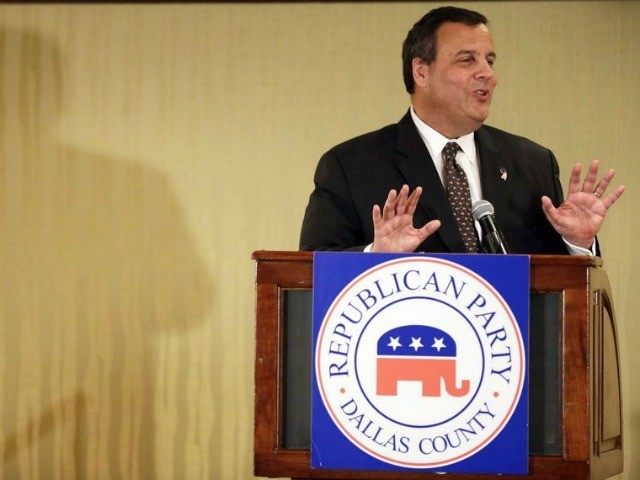New Jersey Gov. Chris Christie’s presidential ambitions seem to have survived the media-driven “Bridgegate” mini-scandal. Should he formally campaign for the Republican nomination, however, Christie may face more serious scrutiny over his close ties to mega-donor and gambling magnate Sheldon Adelson and actions the governor has taken to constrict on-line gaming, which is legal in the Garden State.
Its a policy and political minefield many potential candidates may have to navigate.
Earlier this week, the Benton Evening News in New Jersey reported allegations that Gov. Christie had blocked PokerStars, one of the world’s largest on-line poker sites, from obtaining a gaming license in New Jersey.
In 2013, soon after the state legislature legalized on-line poker and other games in the state, PokerStars had announced a partnership with an Atlantic City casino to open a $10 million interactive poker room. The company, however, has been unable to secure a state gaming license, blocking the expansion.
“Christie put a stop to it,” state Senator Raymond Lesniak told the newspaper. “With a high degree of confidence it’s apparent that’s exactly what has happened.”
“It’s pretty well known,” Lesniak, who sponsored the legislation legalizing on-line gaming, said. “But I don’t think anyone’s going to go on the record to confirm it.”
What is currently a state-specific debate may take on more urgency if Christie runs for President. Las Vegas gambling magnate Sheldon Adelson, is a leading opponent of legalizing on-line gaming. He is also perhaps the single most important individual donor for the GOP. His support is an important prize for any Republican hopeful for the nomination.
The New York Times reported earlier this month that Christie and Adelson have a very close personal relationship. Christie has used Adelson’s personal jet for several domestic and overseas trips. Christie’s office told the Times that Adelson had never personally lobbied the governor on the on-line gaming legislation.
Adelson’s chief focus for the past several years has been securing a federal ban on internet gaming. He has pledged to “spend whatever it takes” to pass a ban.
In January, Adelson flew to D.C. to meet with Republican leaders. Just weeks after the trip, Utah GOP Rep. Jason Chaffetz introduced federal legislation to ban internet gaming. South Carolina Sen. Lindsey Graham, who has hinted at running for President, introduced a similar bill in the Senate.
On Wednesday, it was reported that Adelson had signed up as a “co-chair” of a Graham fundraiser in March. The funder is widely seen as “testing-the-waters” event for a potential presidential run.
This week, Florida Sen. Marco Rubio is in Nevada to promote his latest book. Rubio is on record supporting federal legislation banning internet gaming.
Internet gaming, such as on-line poker, wasn’t illegal in the U.S. until 2005, when then-Senate Majority Leader Bill Frist attached language to a “must-pass” port security bill. The almost “dead-of-night” legislation updated a 1960s-era federal Wire Act to effectively ban on-line gaming by criminalizing the financial transactions underpinning the games. In an updated “bootleggers-and-baptists” coalition, Frist’s language banning on-line gaming got a late lobbying boost from the NFL, while most casinos remained neutral.
A federal judge later struck down the ban, allowing states to set their own laws and regulations. The push in Congress, supported by Adelson, is to overturn the judicial ruling and reimpose a federal ban.
Setting aside the debate over gambling, either in-person or on-line, Republican support for a federal ban is odd, given the party’s normal preference to reserve to the states those laws not authorized to the federal government by the Constitution.
But this is a difficult issue. Even former Texas Gov. Rick Perry, an otherwise stalwart champion of the 10th Amendment, has supported a new federal ban on internet gambling. It is certainly possible that Perry’s recent conversion to the cause of a blanket federal ban is influenced at least in part by the outsized role Adelson plays in the GOP nomination sweepstakes.
There is nothing wrong nor nefarious about Adelson’s opposition to online gambling. There also is nothing wrong with Adelson supporting his views with his mammoth checkbook. His actions are a hallmark of a free and open economy and political system.
The appropriate focus here is not on Adelson, but on the politicians who are eager for his financial and political support. Securing donations for a position you believe is one thing. Shaping those positions in the quest for donations, however, is an altogether different animal.

COMMENTS
Please let us know if you're having issues with commenting.